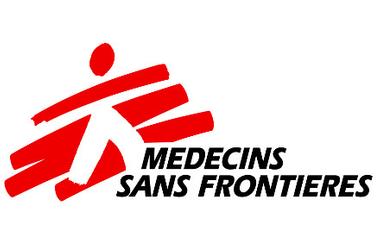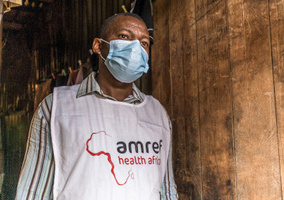Médecins Sans Frontières (MSF) has pledged “collective change” in its imagery use, following a preliminary review of its archive.
The charity filed a serious incident report with the Charity Commission last year, after facing criticism over its publication of “problematic images”.
MSF, also known as Doctors Without Borders, apologised for the decision to publish identifiable photographs of a 16-year-old girl who was the victim of rape in Democratic Republic of Congo.
In a blog, the charity said “following widespread criticism, both within MSF and externally, we removed the images from all our platforms”.
‘We’re having an organisation-wide conversation’
Last week, MSF International posted on Twitter: “We were rightly the subject of controversy in 2022 after sharing photos of a 16-year-old girl who was the victim of rape in the DRC.
“Now, we’re having an organisation-wide conversation about the protection and visual representation of people in our care, and how we circulate images for editorial, fundraising and commercial purposes.
“We owe this collective change to the people we care for. More on our reflections and work on this important issue.”
In 2021, the charity launched a project to investigate thousands of images in the MSF archive. By the end of 2022, this process had identified 10,000 potentially problematic images.
The blog reads: “The most sensitive images are now hidden from the database for most users, while the remaining ones carry a specific warning in their captions.”
In 2023, this work will be refined by a panel of internal and external advisors, comprising photography and child protection experts, curators, academics, ethicists, patient activists and first-line medical workers.
The panel will review a set of these problematic images and make recommendations, which the charity will apply to the full media database.
MSF added it is amending collaborations with some agencies and asking them to remove or restrict distribution of certain sensitive images.
“We are also reviewing our standard contracts with external photographers, especially clauses related to reselling images taken during their assignments to external media,” the blog states.
‘MSF has been called out’
The blog states that the controversy sparked a wider conversation about the protection and visual representation of people in the care of MSF, “and the circulation of such imagery for editorial, fundraising and commercial purposes”.
“This excessive display of suffering is both unjustifiable and unnecessary. As a global NGO, and as individuals, we must reflect on how our world view and choices are influenced by historical power dynamics, and to what extent they have created deep-rooted biases.
“MSF has been called out on images of our patients on news and photo agency websites, for which we do not hold the copyright. When photos of our patients are taken during a media visit and posted on a news agency platform, both MSF and the agency instantly lose control over their circulation and use.
“We must therefore acknowledge that, by prioritising high public visibility, in a context of increased marketisation of the news sector, we have contributed to the over-exposure of people in our care and facilitated the wide dissemination of sensitive, intrusive and sometimes disturbing images,” it adds.
MSF added it is engaging with a wide variety of people within MSF through surveys and workshops – “the notion of informed consent and agency will be at the core of these considerations”.
“Inevitably, there will be difficult conversations and disagreements. However, there is a consensus on the fact that the dignity and integrity of our patients should prevail over all other considerations. Even if it means snapping and sharing less often.
“We owe this collective change to the people to whom we provide care.”
Related Articles












